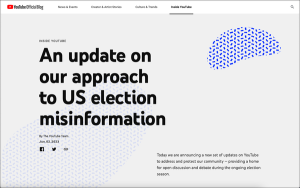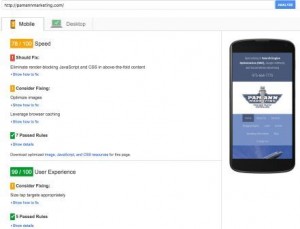Rick Backus, (September 22, 2015)
Earlier this year, Google upgraded its dynamic-search ads (DSA) program, making it significantly easier for retailers to improve their campaign efficiency, spending and scalability. Finally, advertisers have the ability to build out their campaigns without having to slave over keyword research.
If you’re a retailer with a content-rich website and your goal is to drive-high quality traffic to your most relevant pages at a cheaper cost, DSAs are the way to go. Since the update, we’ve seen solid results using DSAs as the primary campaign type, replacing keyword targeting.
DSAs use Google’s organic web-crawling technology to automatically target relevant search queries based on a retailer’s website content.
When Google finds searches that are a match for dynamic ad targets, it generates the ad headline and landing page URL. This URL is linked to the most appropriate page from a retailer’s website.
DSAs lead to better return on investment through incremental traffic and create custom campaigns that allow retailers to target ads to many different types of queries.
Here are other benefits DSAs provide:
1. Efficiency gains. Retailers save time by alleviating the need to research the most appropriate landing pages and keywords to target. DSAs pull relevant data from Google’s organic search index. This trims the amount of time retail marketers have to spend building out keywords, bids and ad text for each product on their site.
2. Automatic ad updates. When retailers make changes to their page or add new pages, Google will automatically crawl the website to make sure they are harvesting the most recent, updated version of their website.
3. Relevant, dynamically generated headlines. According to Google, when a customer’s search is relevant to a product or service, it will dynamically generate an ad with a headline that includes words from that customer’s search phrase and the landing page in the ad. DSAs also include a generated headline that is slightly longer than standard text ads, providing the ad with increased visibility & relevance.
4. Increase traffic. More visibility gives ways to an increase in traffic, which can lead to profitability in sales. The more retailers invest in optimizing their campaign, the more customers they can reach.
5. Save money. In our experience, CPCs have been lower on DSA search terms than CPCs on clicks won by keyword targets. We’ve seen these results across broad, phrase, and exact match keyword targeting.
So, are there any reasons why a retailer might want to avoid DSA?
If retailers already have a proven list of exact-match keywords that convert within their target ROI, they can still test DSA campaigns. But they should exclude these exact-match keywords from their DSA campaign, and spend more time optimizing keyword bids, campaign settings, and ad copy/landing pages for proven converters.
(95)
Report Post






